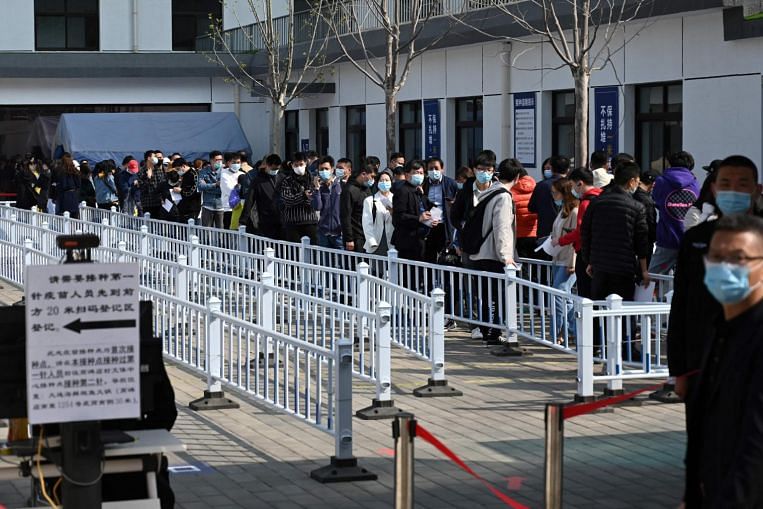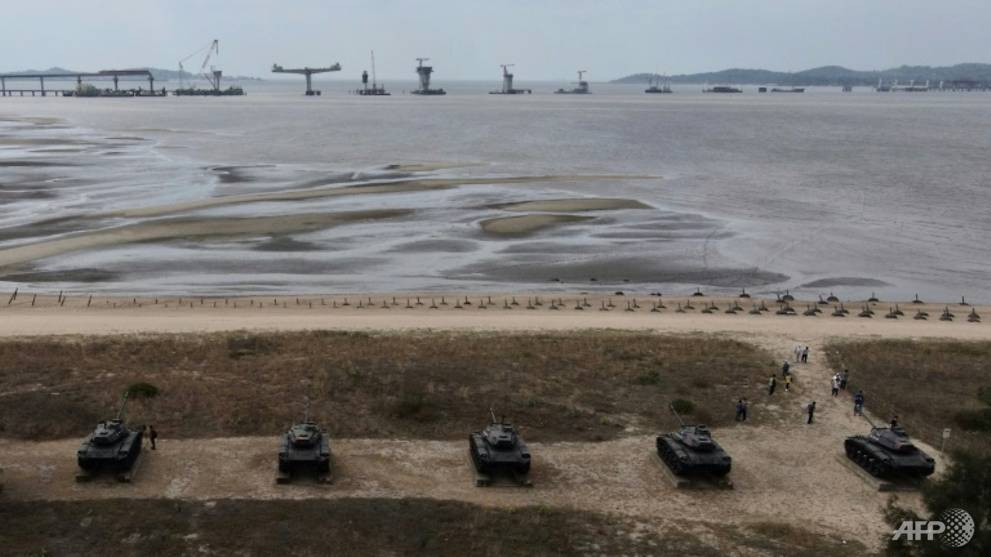
KUALA LUMPUR: Malaysian Senior Minister for Security Ismail Sabri Yaakob announced on Monday (Apr 12) that movement control orders (MCOs) would be extended across the country, Bernama reported.
The states of Johor, Kelantan, Penang and Selangor as well as Kuala Lumpur will remain under the conditional movement control order (CMCO) from Apr 15 to 28, while Sarawak will continue to be placed under the CMCO from Apr 13 to 26.
The states of Kedah (except in Kuala Muda), Melaka, Negeri Sembilan (except in Seremban), Pahang, Perak, Perlis, Sabah and Terengganu as well as Labuan and Putrajaya, meanwhile, will see the recovery movement control order (RMCO) extended from Apr 15 to 28.
Ismail Sabri also said that the government had placed Kampung Meruntum, Sabah, under the enhanced movement control order (EMCO) from Apr 13 to 26 following a rise in COVID-19 cases in the locality.
READ: Malaysia to give Sinovac COVID-19 vaccine to people aged 60 and above
READ: Malaysia deliberating over use of AstraZeneca COVID-19 vaccine after EU findings
“COMPLY WITH THE SOP”
On the COVID-19 situation in the country, Ismail Sabri said that data from the Ministry of Health (MOH) showed that Malaysia could potentially face a fourth wave of the pandemic, judging by the fact that the daily infectivity rate on Sunday rose to over 1.0.
As such, he urged the public to comply with standard operating procedures, especially since Ramadan bazaars and Tarawih prayers will be allowed during the fasting month.
"The rate of COVID-19 infectivity according to yesterday’s daily (cases) nationwide rose to 1.06," he said.
"We must all comply with the SOP, more so since there are a lot of activities during the Ramadan month, such as the Ramadan bazaars, breaking of fast and Tarawih prayers."
Ismail Sabri said that state governments could tighten the standard operating procedures set by the federal government if necessary to help them control their local COVID-19 outbreaks.
“(When) the National Security Council (MKN) sets the SOPs, it should be followed by every state, but we are also of the view that the state governments can use their own discretion based on cases that occur in their respective states,” he said.
“I have discussed it with the Ministry of Health that the state governments can impose stricter regulations if necessary.
“What is not allowed is to relax the SOPs set by the federal government.”
Yesterday, the Kelantan government announced the cancellation of Ramadan and Aidilfitri bazaars statewide, even though the federal government had earlier approved the opening of such bazaars this year.
READ: Muslims navigate restrictions in the second Ramadan amid COVID-19 pandemic
RAMADAN BUFFETS ALLOWED
With Ramadan beginning on Tuesday, Ismail Sabri announced that the government will allow all restaurants, stalls, eateries, hotel coffee houses, fast-food shops and food delivery services in states under the CMCO and RMCO to operate until 6am during the fasting month.
He said this was to enable those fasting, especially those who are single, to purchase food for their pre-dawn meals.
However, he said that eateries in shopping complexes or supermarkets would be subject to the operating hours of the said premises.
He added that hotels, restaurants and eateries would be allowed to hold buffets for the breaking of fast, with strict compliance to the standard operating procedures. Food handlers will be required to serve food to customers at buffets, for example, while tables must be set 2m apart.
“For the breaking of fast in offices and halls, areas under CMCO must ensure the event occupies only 50 per cent of venue’s capacity while 100 per cent capacity is allowed for RMCO areas, but in accordance with the stipulated SOP,” he said.
https://news.google.com/__i/rss/rd/articles/CBMiX2h0dHBzOi8vd3d3LmNoYW5uZWxuZXdzYXNpYS5jb20vbmV3cy9hc2lhL2NvdmlkLTE5LWNtY28tcm1jby1leHRlbmRlZC1tYWxheXNpYS1yYW1hZGFuLTE0NjA4MzI20gEA?oc=5
2021-04-12 13:52:30Z
52781509720119




